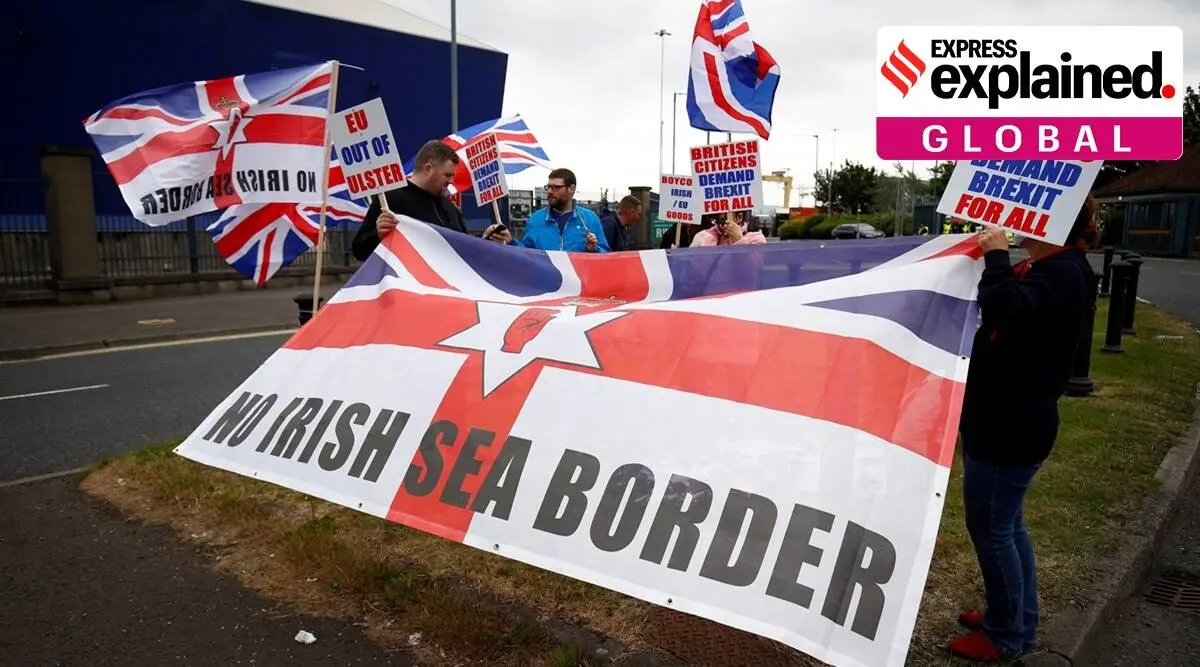Boris Johnson campaigned and triumphed in the 2019 UK general election with the catchphrase “Get Brexit Done.” It was a strategic gamble, assuming that most voters were tired of the ongoing Brexit debates and wanted the government to finalize a deal and leave the European Union. With a robust parliamentary majority, Johnson could push through a deal that effectively kept Northern Ireland within the EU’s single market for goods, sidestepping the need for support from the Democratic Unionist Party (DUP). For most people in Britain, this might have signaled the end of the Brexit saga. However, in Northern Ireland, the sea border continued to be a contentious issue, eventually causing the collapse of devolution.
The Windsor Framework, along with a subsequent agreement with the DUP, suggested that there might be a resolution that would allow the restoration of devolved government, hinting that Brexit could be considered “done” in Northern Ireland as well. Yet, recent events indicate that the situation is far from straightforward.
A House of Lords committee pointed out significant unresolved issues, specifically regarding veterinary medicines. Medicines have been one of the trickiest post-Brexit trade issues for Northern Ireland. While the EU allowed significant adjustments for human medicines, veterinary medicines still face strict re-testing and re-labelling requirements if they are shipped from Great Britain to Northern Ireland, potentially leading to their withdrawal from sale.
Given the history of Brexit negotiations, it’s likely that an agreement will eventually be reached, but this will require in-depth negotiations, which haven’t yet begun. According to Lord Jay, the chair of the committee, talks may not even start until after the European and UK elections.
Another recent development was the introduction of physical checks on EU agrifood products entering Great Britain, except for those coming from the Republic of Ireland. This exemption is due to inadequate facilities at Welsh ports, which are not expected to be ready until mid-next year. This raises a critical question: how can controls be imposed on goods from the Republic of Ireland entering Great Britain without affecting the “unfettered” flow of goods from Northern Ireland?
Unfettered access for Northern Ireland goods was a key promise made by the UK government during the Brexit negotiations. This promise is legally upheld by the Qualifying NI Goods Regulations, which allow most goods in free circulation in Northern Ireland to count as qualifying for unfettered access, albeit with stricter rules for food and animal feed. The enforcement challenge is how to check non-qualifying goods without disrupting the free movement of qualifying goods. The UK government has stated that it will not conduct checks on shipments arriving from Northern Ireland at Scottish ports, but this leaves open the question of how illicit goods might be detected.
A recent vote in the Northern Ireland Assembly highlighted how Brexit remains a contentious topic in Northern Ireland politics. The assembly voted on whether to add an EU regulation regarding content requirements for organic pet food to the existing body of EU laws that continue to regulate goods in Northern Ireland. Although it was a relatively minor regulation, it showcased the underlying tension. Most unionists who voted supported the regulation to prevent further divergence between Great Britain and Northern Ireland, underscoring the complex dynamics of post-Brexit governance.
These recent developments indicate that Brexit’s impact in Northern Ireland will continue to be a prominent and complicated issue, with political and regulatory challenges likely to persist in the foreseeable future.















































